 |
 |
 |
|||||||||||||||||||||||||||||||||||||||
God is LoveThe Law of God - Part OneThat God is love is a theme worth dwelling upon. But we need to understand that He also has laws that govern His created beings. We need to understand that the concept that God is love and His law are not incompatible.Sometimes our minds just have ways of putting things together and they just "click" or suddenly make sense to us. Maybe our angels help us to put verses together that we are meant to connect to help our understanding. Several years I was thinking about the following verses:
Can you see why a person might wonder about these two verses? That little word "till" in Matt 5:18 implies that when or after a certain point is reached there can be a change. The event marking this point is heaven and earth passing away which occurs just before the new heaven and new earth are created. (Rev 21:1) There seemed to be a logical connection between these verses. Heaven and earth pass away after the millennium in preparation for the creation of the new earth. None of God's laws could be done away with until this point but after this point? - perhaps. With this question and these two verses in the back of my mind, I happened upon another one. "For the priesthood being changed, there is made of necessity a change also of the law." (Heb 7:12) This verse mentions a change in law and a change in priesthood before the time mentioned in Rev 21:1. I struggled with trying to put these three verses together since the first two state that there would be no change in the law until heaven and earth are gone and the third mentions a change in the law well before this. Out of trying to understand this, I developed a study and a diagram that helped to reconcile the concept that God is love with the law of God. This was expanded and detail added to develop a big picture which helps explain the law, the covenants, aspects of the character of God, what was done away with at the cross etc. It greatly helped me to reconcile the law of God with the concept that God is love and my prayer is that it will help others as well. IntroductionThis study uses the concept of going back to the larger picture, the underlying principles, and considering the eternal purposes of God within the context of the great controversy between good and evil. It attempts to describe the law of God in its various aspects in the form of a diagram that shows the relationship between the moral and ceremonial laws, the sacrificial system, and the priesthood. It is all related back to the most fundamental principle that God is love. I believe illustrations such as this are valuable in helping us to see the relationship of the different aspects of God's law and His purposes for us. In this study, several things will be expressed as principles. The definition of a principle is "a truth that is a foundation for other truths." We will see that these principles are developed and applied in different ways during different periods of history but the basic underlying principle (God is love) always applies. To help keep them straight, principles will always be shown as red text. Background"God is love." This is an eternal principle and is the first thing we need to understand as far as background. The whole great controversy, the conflict of the ages between good and evil, is about this idea that God is love. There is a very popular series of five books, The Conflict of the Ages Series on this theme. It is interesting and significant that the first three words of the first volume, Patriarchs and Prophets are "God is love." Similarly, the last three words of volume 5, The Great Controversy, are also "God is love." Everything in the 3500 pages between is an expansion and illustration of this great truth, this principle. We will see that this principal is the basis for many of the other characteristics of God and His law that we will examine in this study. (There is much more information on the character of God at my newer website - characterofGod.org.) These will form the basis for other principles that will help our understanding. Before we go further, we need to answer some questions to help us understand God. Has God Always Existed?
There has never been a time when God has not existed. Does God Change?
God does not change. Here is another important principal. There are verses that speak of God changing a course of action or stating that He will but it is always in the context of a change in man. God reacts to our actions but always within certain principles that have our best good at heart and always consistent with the underlying principle that God is love. Does God's Law Change? God, who created us and the whole universe, has created laws that govern everything. We may think of God's law as mostly of a moral character but He also instituted the laws governing natural forces such as of gravity, laws governing how light works, how matter is constructed and every other physical law. He is responsible for everything there is and how it works. We understand such things as gravity to be constant, unchanging. His moral law also is constant although the first verse we considered (the one with the word "till") questions that - this is the whole reason we are looking at this now and trying to understand it better. "The works of his hands are verity and judgment; all his commandments are sure. They stand fast for ever and ever, and are done in truth and uprightness." (Psa 111:7-8) If God's law does not change we need to resolve the question raised by Heb 7:12 and the combination of Matt 5:18 and Rev 21:1. And we will, shortly. Does God's Law Reflect His Character? In looking at scripture one can pick out verses that describe God and verses that describe His law. If we match these up something very interesting happens. Look at the following: Comparison of God and His Law
God is love; God's law is love etc. There is obviously a close connection between God and His law. As can readily be seen, God's law is a transcript of His character. This might imply that it can no more change or end than can the eternal God Himself. The key is to rightly understand what constitutes a change. We have already mentioned that God can change what He does or proposes to do in reaction to a change in man. This "change in behaviour" is exactly because "in underlying principles" He does not change. Another way to think of it is that we need to understand the difference between a principle and its application. The principles we have identified so far are:
Does God Change His Mind? We have already touched on this but let's look more closely. If God does not change, then does He change His mind? If He does, we want to understand what that means. Exploring this question will help us understand how a principle works. If I change my mind, have I changed? We might use an illustration to help here. Parents may have a goal to raise their child in the best possible way and that could include disciplining the child as necessary. Good parents wanting the best for their child would never punish if it was not necessary. But, in response to wrong actions on the part of the child, they may decide to use some appropriate discipline for the long-term good of the child. Have they changed their minds? No, they have reacted to circumstances (such as misbehavior) in accordance with their larger purpose or principle (to train up a child in the way he should go). There is the Biblical example of God's dealing with his children in Nineveh. Did God want to see them destroyed? We would answer "no, of course not." That answer would be based on the principle God is love. He told Jonah to go and preach the imminent destruction of the city. Then, in reaction to the Ninevite's sincere repentance, He was able to extend His protection over the city. "If that nation, against whom I have pronounced, turn from their evil, I will repent of the evil that I thought to do unto them. ... If it do evil in my sight, that it obey not my voice, then I will repent of the good, wherewith I said I would benefit them." (Jer 18:8, 10) While God may react to our actions, His eternal purposes remain the same. He only "changes" in response to our choices. By the way, God's "repentance" does not imply wrongdoing on His part as we might think from the word. It simply refers to a change in course of action. Or, in the case of the flood, it was regret not so much over the act of creating man but the way it turned out. In this case, His purpose was the salvation of the people of Nineveh and He never changed that. He "changed" in reaction to a change in the actions of the people but He did not change His underlying goal. His actions stayed true to the greater, underlying principle. It is important, in trying to understand God and His dealings with us, that we look at the big picture. On the surface, just reading a few verses, God changed His mind in relation to the Ninevites. We need to learn the same lesson Jonah did and see God as He really is, always trying to work out His larger purpose of our salvation but, within that larger purpose, reacting to us for our best. Since we have discussed Nineveh and its threatened destruction, I should mention the concept that God does not actively destroy (God is love) but the destruction happens as a result of people turning from Him and thus forfeiting His protection from Satan, the destroyer. This is well explained in the book "Light on the Dark Side of God" which I highly recommend. In fact, I recommend it so highly I am supplying FREE copies. God's Law in the Beginning
Now let's start to diagram the principles mentioned here as we develop this further. The diagram will be titled God's Law to Meet Man's Spiritual Needs Throughout Salvation History and we will add to it as we enlarge on this concept.. Our first principle, the one on which everything else is based is that God is love. The principle that God is love can be extended into eternity past, even to infinity as it is the very essence of who God is. This is indicated by the double arrowhead pointing backwards in the next diagram.
Love, as we understand it, requires a recipient. The moral law can be summarized by the principle of love and everything else within it is simply an expansion or amplification of this to meet varying circumstances. When there was only God there was no need for even the Sabbath command. Who was there to come to worship and have fellowship with God?
Creation of the Universe. At some time in the past, other beings, including angels, were first created. Before this, all that existed was God. We'll add "Creation of the universe" along the bottom of the diagram where we will be building a time line.
Once there were other intelligent beings, there was a need to have the law of God apply to them. The principle that God is love was then expanded and was expressed still as love, but as both love to God and love to others. This was expressed by Jesus as the summary of the law:"Jesus said unto him, Thou shalt love the Lord thy God with all thy heart, and with all thy soul, and with all thy mind. This is the first and great commandment. And the second is like unto it, Thou shalt love thy neighbour as thyself."
Creation Week. At this point, man entered the picture. We don't know exactly in what form Adam and Eve understood the law of God. What would "Honour your parents" or "Thou shalt not commit adultery" mean to them? Man was created with free choice and obviously he was quite capable of sinning since: "...sin is the transgression of the law." (1 John 3:4) Thus, there had to be some law that applied to them. Man also needed guidance about how to act; he needed a standard of behaviour. So, in our diagram, as soon as man is created we can add the first of man's spiritual needs - man needs a standard. This is a principal ("a foundation for other truths") that will be expanded on (with the principle itself never changing) to meet man's needs as conditions change. The Law in Adam's Heart. It might be reasonable to assume that man, at creation, had God's law in his heart. God would certainly have created man with everything he needed to live in obedience and in right relationship to his Creator. God's concern was mostly a matter of the possibility of them making any choice that would hurt them in any way or mar their happiness. That is what God wanted to avoid. His great concern is for the happiness of His children. And we understand that God's goal is to again write His law in the hearts of those who are willing. "This is the covenant that I will make with them after those days, saith the Lord, I will put my laws into their hearts, and in their minds will I write them;" (Heb 10:16) So we can add to our diagram that the law was in the hearts of Adam and Eve to guide their actions. Man, being created with free choice is capable of choosing wrong but at the start, having the law in his heart it would be instinctive to obey it.
With the law in his heart it was relatively easy to obey but the possibility of disobedience was always there. God wanted a relationship with beings having a free will, not robots. God is love and that love is freely given. He wants it to be freely given in return. And so we can identify a second need of man - man needs motivation. The incentive was simply that God is love. God had created them and given them everything needed for their happiness. In receiving His blessings they were to respond to the principle that God is love and love Him in return.
God's Purpose in Creating Man This was to have fellowship with Him and for man to receive love and blessings from God. Of course, love, to be love, cannot be forced. Man had to have a choice in the matter or he would have been merely a robot. Our first parents, though created innocent and holy, were created as free moral agents, capable of appreciating the wisdom and benevolence of God as well as the justice of His requirements but with full liberty to obey or not. God honored man's free will so much that He even gave them the opportunity, in the form of the tree of knowledge of good and evil, to choose to not obey Him. Man was told: "But of the tree of the knowledge of good and evil, thou shalt not eat of it" (Gen 1:17) This tree was a test of their faithfulness to God. He had provided for all of their needs but He was not going to force them to love Him. God allowed the opportunity to choose not to love Him. Now God is allowing man to have His free will but He is not into playing tricks. There had to be something about that tree that made it clear that it was the one tree they were not to eat of. Something perhaps about its appearance or its position in the garden would have identified it as the tree to be cautious of. Somehow they would have had something to remind them that this was the tree. We can now add another category of man's spiritual needs.
We will call it "don't touch" in reference to the tree. Of course, they also had the weekly Sabbath to remind them that God was their Creator. We call it a reminder but it is interesting that, in fact, they never saw God create anything. Even when God took a rib from Adam's side it was done under anesthesia. I am saying that there had to be a reminder of which tree was the problem but there is a sense in which the tree itself was a reminder. It was to remind them that they had a choice, that they were to love God of their own free will.
There were other reminders dating from creation week: "And God said, Let there be lights in the firmament of the heaven to divide the day from the night; and let them be for signs, and for seasons, and for days and years:" (Gen 1:14) The word here translated "seasons" comes from the Hebrew word "moed" which means appointed times. The heavenly bodies served to remind Adam (before sin) of his appointments with God. Remember that man was created for fellowship with God. They had that relationship until sin - their demonstrated distrust of God - spoiled it. God's Law After Sin We'll now add to the time line the point of Adam and Eve's sin in Eden.
Since "sin is the transgression of the law" (1 John 3:4) there had to be some law that applied to them. When man fell, the following four things happened: 1. Man's nature changed and the law was no longer written upon His heart. "Because the carnal mind is enmity against God: for it is not subject to the law of God neither indeed can be" (Rom 8:7) The mind being subject to the law of God is equivalent to the law being written in the heart. It is like the law of God was erased from man's mind at that point. He still knew it as he did before but obedience was not as easy for his carnal heart. 2. Man was separated from God. The great tragedy of sin is that it separated man, who was created for fellowship with God, from Him. "Your iniquities have separated between you and your God." (Isa 59:2) 3. Man faced the "sentence" of death. The inevitability of death as a consequence of that separation from God came upon him. "Wherefore, as by one man sin entered into the world, and death by sin; and so death passed upon all men, for that all have sinned:" (Rom 5:12) It should be clear that God did not impose a death penalty. He is always working to save people from death, both temporal and eternal. Sin causes death, not God: Please note that, after this point, this file (and parts 2 and 3) require some changes due to a fuller understanding of the character of God. "The wages of sin is death..." (Rom 6:23) |
Prophecy Newsletter
Receive
free newsletters
reporting and analysing world events related to prophecy.
The Greek has multiple words for forgiveness? God forgives (charizomai) whether we ask or not. Receiving forgiveness (apheimi) is by our choice.
God always forgives!
|
||||||||||||||||||||||||||||||||||||||||
|
|
|||||||||||||||||||||||||||||||||||||||||
|
| |||||||||||||||||||||||||||||||||||||||||


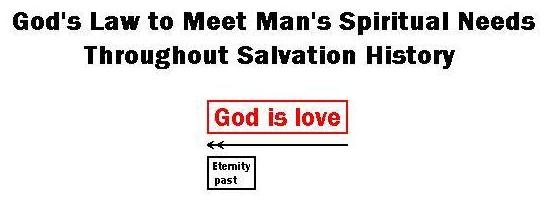
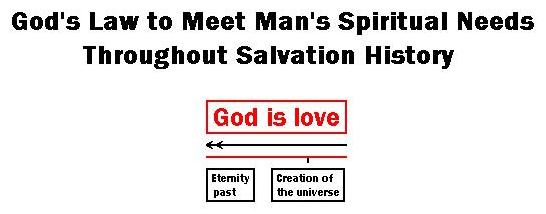
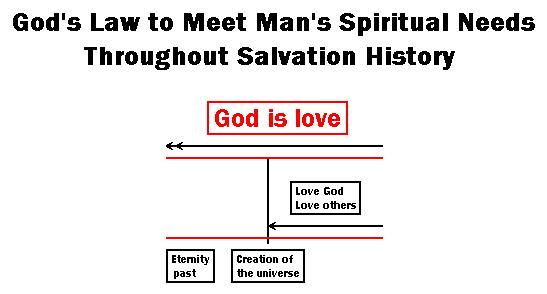
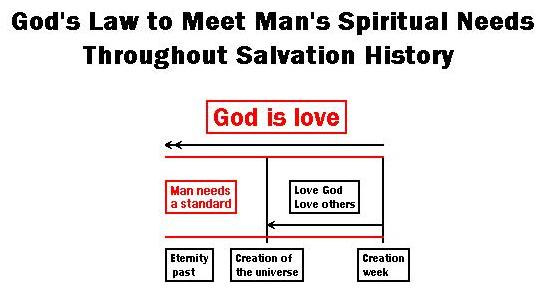
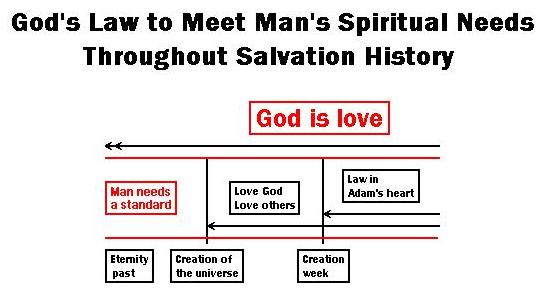
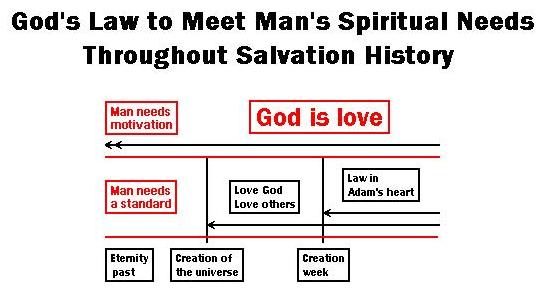
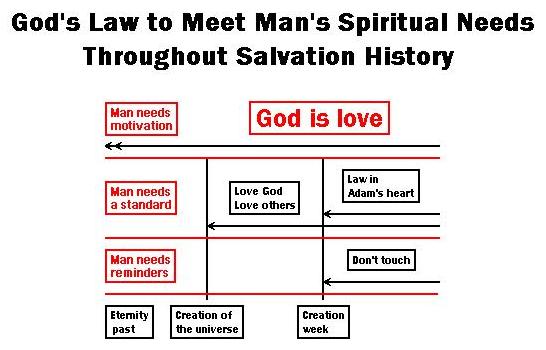
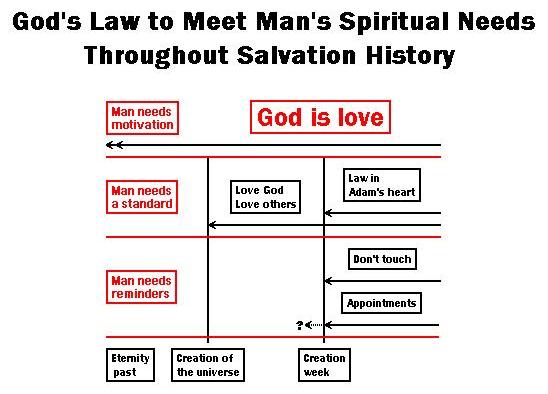
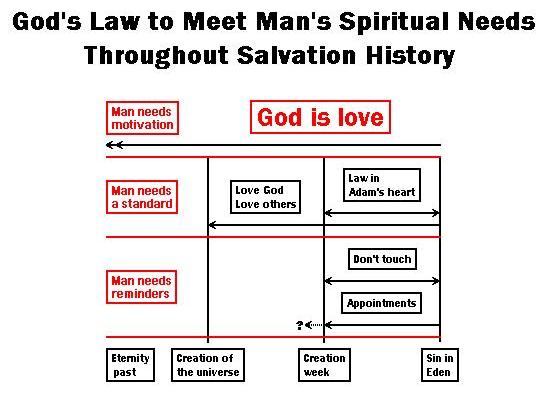
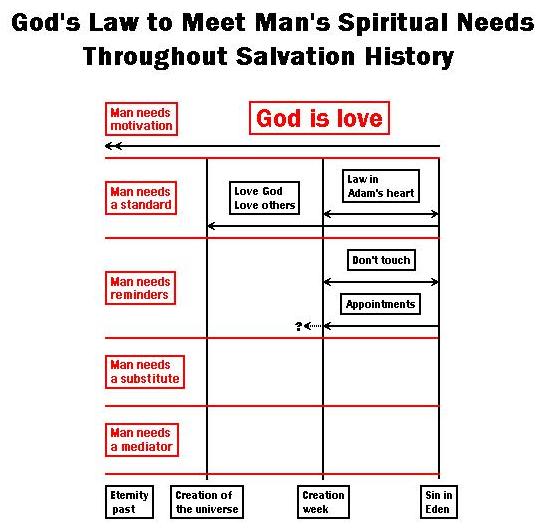

New! Comments
Have your say about what you just read! Please leave a comment below.